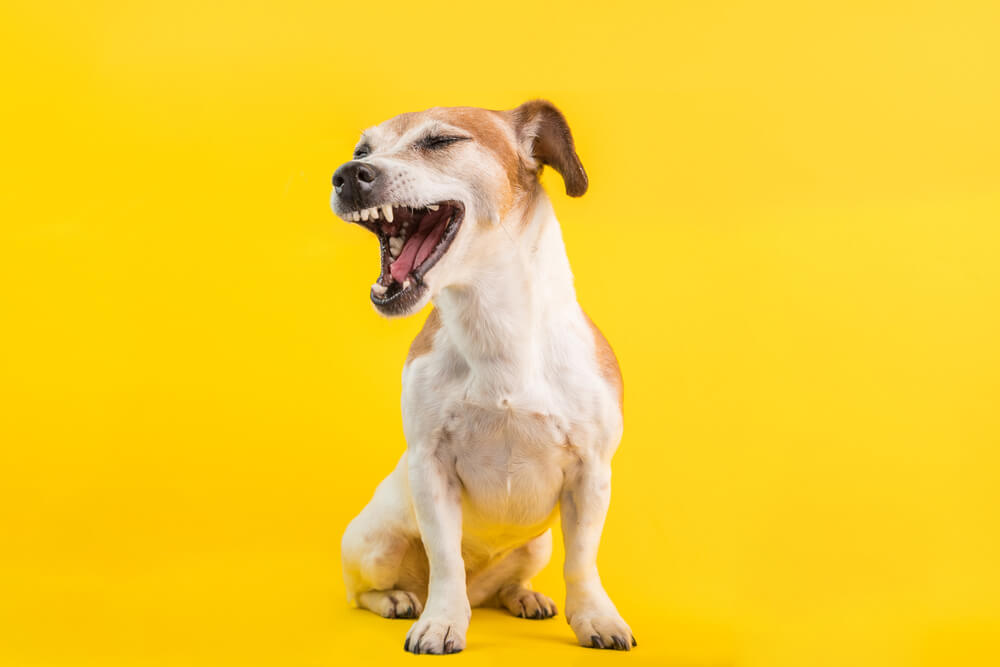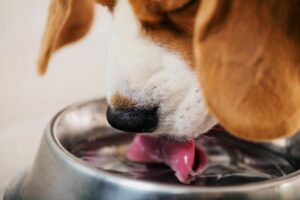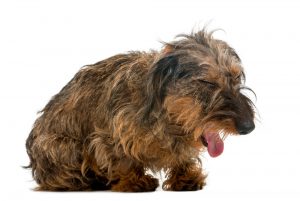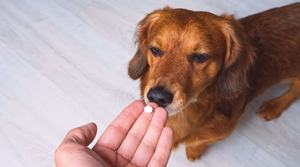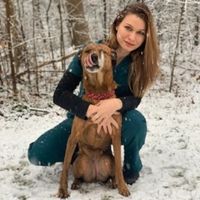
Reviewed & Fact-Checked by
Dr. Paula Simons
Veterinarian (DVM)
Learn more about our Veterinary Review Board »
Has your canine pal suddenly had a sneezing fit and caused you to wonder if there was a problem? We always worry about the health of our pets and some dog owners may feel a bit alarmed if their dog starts to sneeze a lot.
However, sneezing for dogs is like sneezing for humans, a way to clear out irritants in the nose. There are other reasons why a dog sneezes that we'll explore in this article.
Why Does My Dog Sneeze So Much?
The short answer here is that dogs tend to sneeze when something is irritating their nasal passages. Irritants can include pollen, dust, a small bit of debris, or a bug that decided to try and fly up to their nose.
Like humans' airborne allergens and food can cause a reaction in your dog that makes them sneeze. There are also issues like nasal mites and a nasal infection that could be the culprit.
In rare cases, it may be something more serious like cancer that is causing your dog to constantly sneeze.
Lastly, many dogs sneeze when they are feeling playful or excited. It's just another way for them to communicate with their humans.
What Does it Mean When a Dog Sneezes a Lot?
Dogs sneeze when there is an irritant in their nose and we all know that dogs go around sniffing a lot of things. If they are sneezing a lot, it could be due to allergies or a foreign object in the nose that they can't dislodge.
Whether it's pollen, dust, or some dried leaves they accidentally snarfed up, dogs will sneeze until the irritant is gone.
Dogs can also catch colds and viruses, or have allergies that cause them to sneeze a lot. So when does constant sneezing become a concern?
Let's have a look.
Should I be Worried if My Dog is Sneezing All The Time?
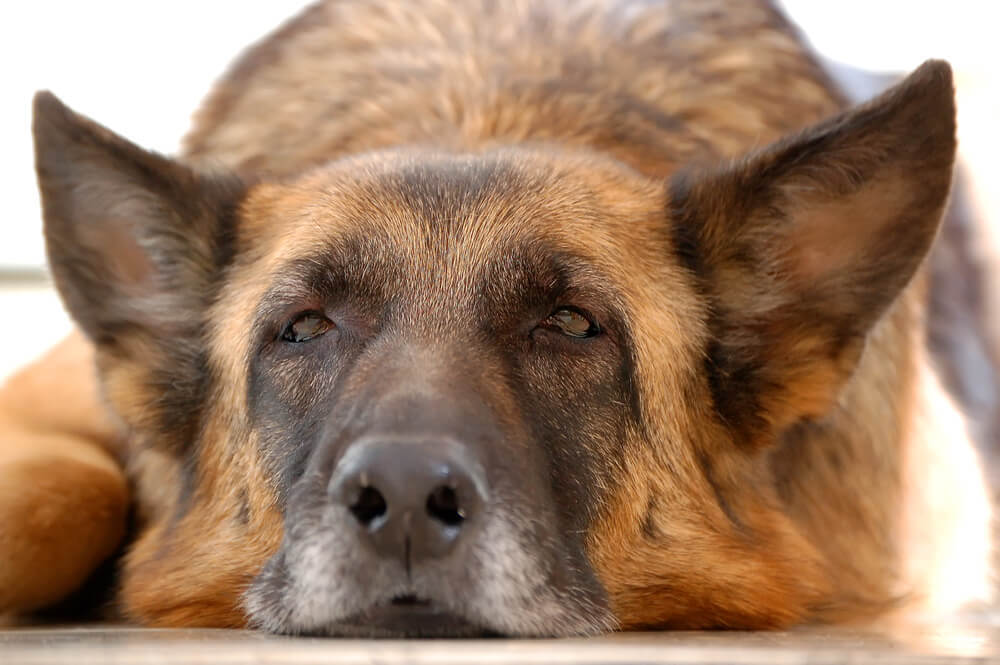
Uncontrollable sneezing can be a sign that something isn't quite right with your pup. Especially if they are showing other symptoms, such as lethargy, loss of appetite, a hacking cough, fever, and eye or nasal discharge.
Consider your dog's lifestyle. If they frequent dog parks or kennels, it's quite possible that they have contracted what is known as canine influenza. In a few more serious cases, canine influenza can turn into pneumonia, so get your pet to the vet if they are exhibiting any of the above symptoms.
To learn more about the signs of kennel cough in dogs click here.
One thing to keep in mind is that flu in dogs can be very contagious.
So, before you rush your dog to the vet, make them aware that you believe they have the flu. Many veterinary practices have protocols in place for seeing pets with something contagious in order to keep it from spreading to other pets.
Infected dogs should be kept isolated, especially if you have other pets in the home. Symptoms of canine flu will start to subside in 2 to 3 weeks. However, experts advise that, from the onset of flu symptoms, you should keep your dog isolated from other pets for at least 30 days.
Colds are another thing that dogs can catch that will cause a lot of sneezing. A cold virus in your dog is pretty harmless for the most part.
However, if your dog starts to show other symptoms, such as the symptoms of canine flu, you should have your vet check them over.
This is especially important if your dog is quite old, a puppy, or their immune system is compromised.
8 Reasons Why Dogs Sneeze a Lot
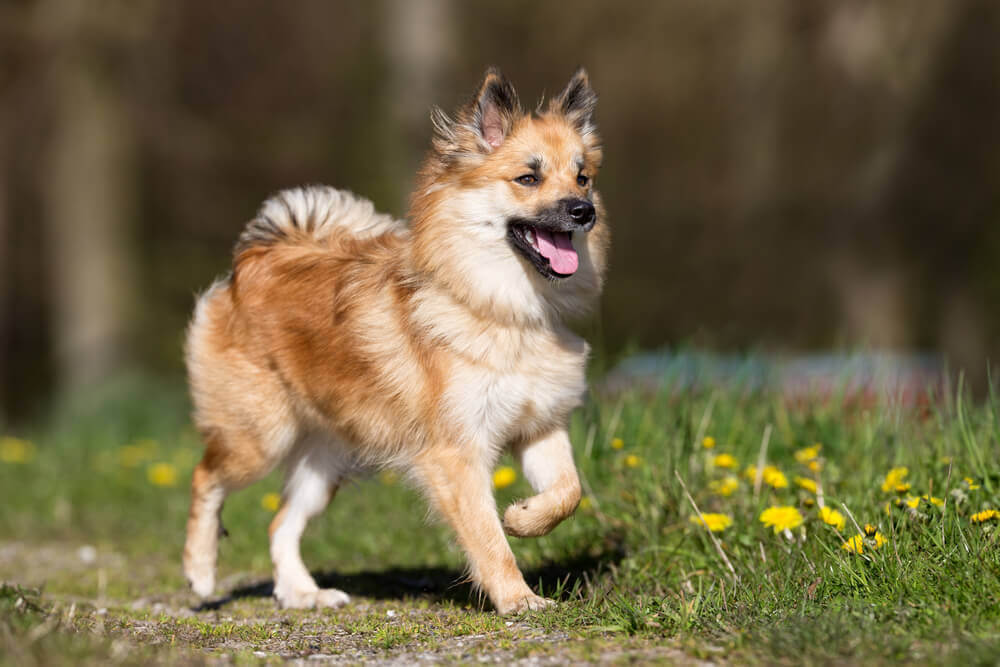
Aside from canine influenza and respiratory viruses, there are several other reasons why dogs sneeze:
Allergies
It's not uncommon for a dog to have seasonal environmental allergies, just like we do. While the most common symptom dogs get with a seasonal allergy is itchy skin, they may also sneeze a lot. If your dog has other symptoms, such as a runny nose, watery eyes, or they are scratching a lot, seasonal allergies could be the culprit.
Other environmental allergens can also cause them to sneeze, such as irritants in the air. For example, when we had brush fires during the summer in Colorado, there was a lot of fine ash in the air. This caused our dogs to sneeze a lot.
Sneezing When Playing
When dogs become excited, playful, or are just feeling happy, they will “play sneeze”. It's their way of communicating to humans and other dogs that their behavior is playful and they are trying to keep things fun and light-hearted.
If there are no other symptoms and your dog is sneezing when playing, they are having a good old time.
Reverse Sneezing
This is an interesting thing that pups will do when they are having fun playing, as well as when something is irritating or causing inflammation in the nose.
A reverse sneeze is caused when a dog makes sudden and repeated inhalations.
In a reverse sneeze, the air is pulled in through the nose rather than pushed out.
The main common causes of reverse sneezing in dogs are:
- Excitement
- Exercise Intolerance
- Pulling on the leash
- A collar that is too tight
- Environmental irritants, like pollen, perfume or household chemicals.
A reverse sneeze can often alarm owners, who think their pets are having trouble with their breathing. This is a condition that is quite common in small and flat-faced dogs but is usually harmless and often goes away without requiring any treatment.
The best thing to do when this happens is to calm your pup down and gently stroke his neck to help him get back to normal.
However, frequent or prolonged episodes should be investigated by a vet to rule out any possible underlying causes or conditions.
Irritants in the Air
Dogs can be sensitive to things like dust and pollen. When inhaled, these particles may become trapped in their nasal passages causing them to sneeze a lot until the irritant has been expelled. Other airborne irritants that can make your dog sneeze are candles that are scented, air fresheners, cleaning products, smoke, or perfume.
Foreign Entities
From small bugs to plant matter, your dog's nasal passages can become irritated when they inhale something that doesn't belong in their nose.
Like airborne irritants, your dog will sneeze continuously until the object is dislodged. In some cases, they may need assistance if an object has become stuck.
Some of the things that our dogs have snorted up and sneezed out are glitter, small sticks, flour, and fur from other pets that have been shedding.
Upper Respiratory Infections
Your dog can contract a bacterial or fungal infection that affects the nasal and upper respiratory passages. Such infections will cause your dog to sneeze and you will see other symptoms along with this, such as mucoid discharge, tiredness, and a lack of appetite.
This is a situation where you need to see your vet for treatment and diagnostics to help determine the cause of the problem.
Nasal Mites
A nasal mite is a very tiny insect that can cause severe irritation in your dog's nose. Mites tend to enter the dog's nose when they are rubbing their nose in the dirt or digging outside.
Nasal mites can cause irritation to the nose and development of a thick or bloody discharge on top of all of that sneezing. If you suspect that your dog has nasal mites, they will need to be seen by your veterinarian for tests and treatment.
Nasal Tumor
Nasal tumors tend to occur in older dogs over 7 years old. They can cause frequent sneezing and nasal bleeding over time. While not all tumors are cancerous, it's important to have nasal tumors evaluated.
Even benign tumors may need to be removed if they are causing discomfort and breathing issues for your pup.
When Should I Take my Dog to the Vet for Sneezing?
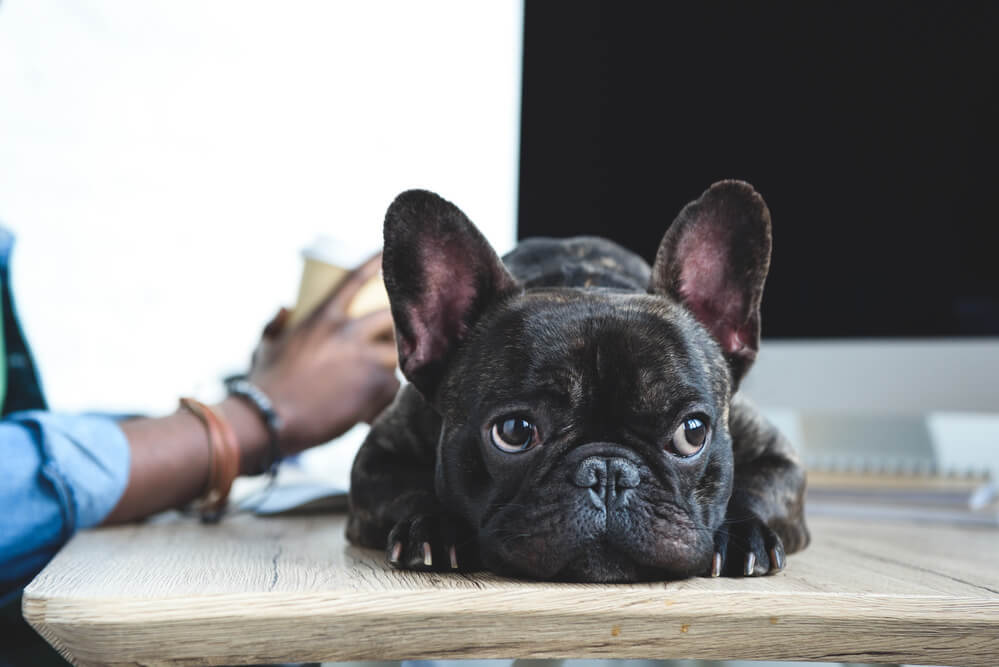
Typically, having your dog sneeze a couple of times isn't a sign that they need to see a vet. However, dog owners know their pets better than anyone, so if they feel something is amiss, they should take them to get a check-up.
There are times when simple sneezing can be a sign of something being wrong. If your dog seems distressed, has an object lodged in its nose, or is having trouble breathing, you should get them to the vet right away. Here are some other reasons to take them to the vet if they are sneezing.
- If your dog has nasal swelling, thick mucus or blood in the nose, loss of appetite, fever, or lethargy.
- If your dog is sneezing a lot without a clear reason, they may need to have some tests run to rule health issues out.
- If your dog is showing signs of allergies that are severe, such as excessive licking, itching, or scratching alongside sneezing.
Other symptoms in conjunction with sneezing that require a vet visit:
- Sneezing blood – can indicate nasal tumors, an infection, or a foreign body in the nose
- Coughing with sneezing – can be a sign of something more serious, such as canine influenza, kennel cough, parasites in the respiratory system, fungal and bacterial infections
- Wheezing and sneezing – could be potential lung issues or asthma
Snorting vs. Sneezing in Dogs
Often, snorting can be mistaken for sneezing and vice versa. With a sneeze, it's an outward expulsion of air. Snorting on the other hand requires an intake of air with the accompanied snort sound.
Snorting is something that is seen in dogs that are overweight, are a flat-faced (brachycephalic) breed of dog, or who have some underlying medical condition.
Pet Owners Also Ask
Talking about sneezing in dogs often brings up the following questions:
1. Why does my dog sneeze in my face?
It has happened to us all. You are cuddling your dog or they are trying to lick your face and you get sprayed with a sneeze.
Why do dogs do this? Well, they aren't doing it on purpose. It can be a sign that they want to move away from the close proximity of their owners when playing.
Many don't know that dogs don't have that natural reflex to step away when too close to a person, so they sneeze in your face instead. If that doesn't get you moving I don't know what will!
2. Why does my dog sneeze when excited?
A sneeze when excited occurs shallowly (rather than deep down in the respiratory system) and causes a kind of snorting when dogs breathe out. It's a sudden force of breath through their nose and is meant to be a form of communication.
This happens a lot when dogs are playing and tend to get naturally excited. It's like a reminder to whoever they are playing with to “keep it playful”, as a way to cool things down if they are getting a bit out of hand. It helps to calm them down believe it or not.
3. Why do dogs sneeze when they play?
As mentioned above, dogs will sneeze when things get exciting and can be their dramatic way of saying “ calm down” when play is getting a bit heated. It works to diffuse a situation that is starting to feel stressful to your dog. Just like their wagging tails and twitching ears, sneezing is a means of communication for them.

